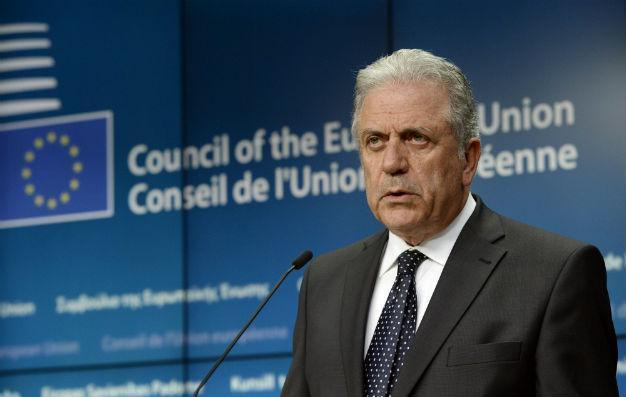EU pledges to better share information on terrorism after Brussels attacks
BRUSSELS - Agence France-Presse

AFP photo
European Union interior and justice ministers pledged on March 24 to better share intelligence on terrorism, during an extraordinary meeting to support Belgium following the deadly Brussels attacks.
The European Commission, the executive of the 28-nation EU, in January already set up a counter-terrorism centre at Europol headquarters in The Hague in a bid to improve information sharing and break down the mistrust that hinders it.
"Today we put pressure on everybody to cooperate better," Dimitris Avramopoulos, the commissioner responsible for security issues and migration, told journalists following the ministerial meeting.
"If we were sharing information, we might dissuade their actions," Avramopoulos said, referring to a string of jihadist attacks in Paris, Copenhagen and Brussels since 2015.
He complained there was "sometimes still a lack of trust" but called for more resources for the counter-terrorism centre and for member states to make full use of it.
In a joint statement, the ministers called to "increase as a matter of urgency the systematic feeding, consistent use and interoperability of European and international databases in the fields of security, travel and migration."
They also called for "making full use of technological developments and including privacy safeguards from the outset."
An EU diplomat said that despite improvements, still only five member states provide 90 percent of the information.
The ministers decided on no new measures during the hastily arranged meeting held hundreds of metres from the underground train station which was hit by a suicide bomber.
The attacks on March 22 at the metro station and the airport killed at least 31 people and wounded 270 others.
The ministers agreed to speed up the implementation of previous measures, such as against the financing of terrorism and against forged identity cards used by Islamic State of Iraq and the Levant (ISIL) militants.
They also urged the European Parliament to adopt plans to track airline passenger names under the Pasenger Name Record (PNR) system.
The PNR was supposed to be adopted in March but some members of parliament postponed it in order to allow a simultaneous vote on protecting personal information.
The EU began discussions on introducing a PNR system in 2010 but misgivings about the security of personal data held up progress, with many MEPs doubly suspicious after revelations about mass US intelligence snooping.
"We are taking too long to carry out the decisions that we have taken," French interior minister Bernard Cazeneuve said.
